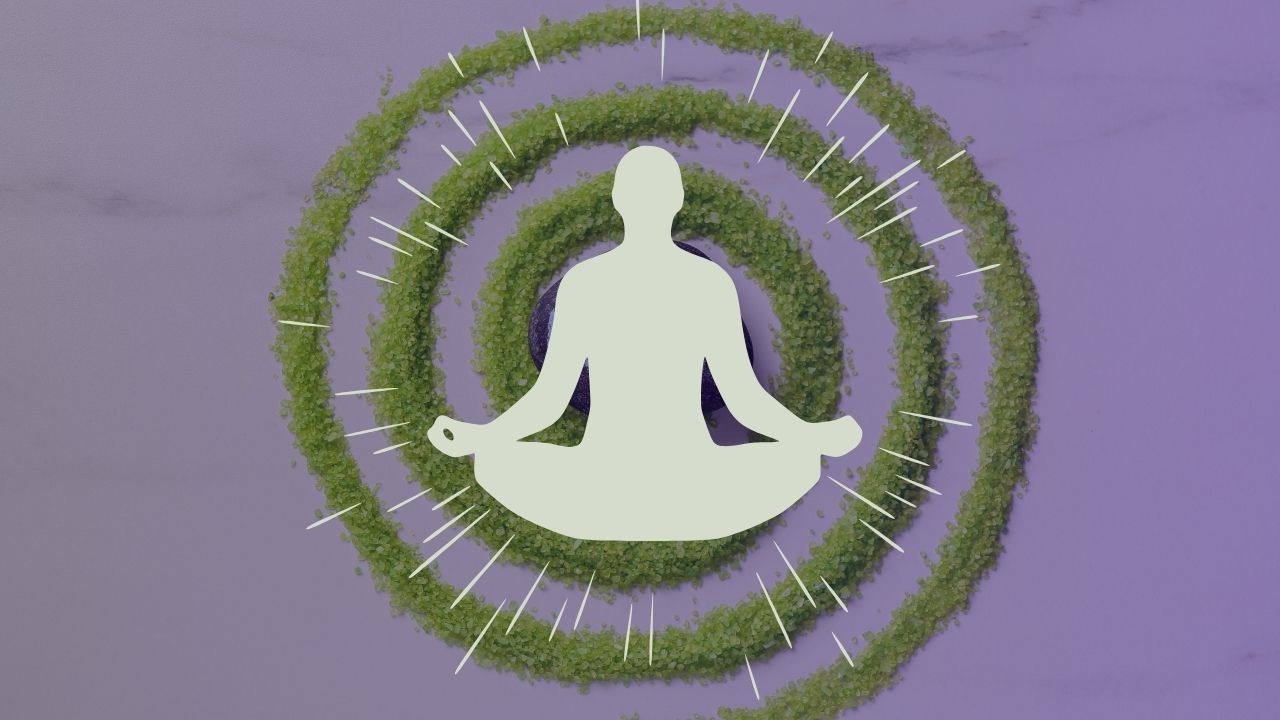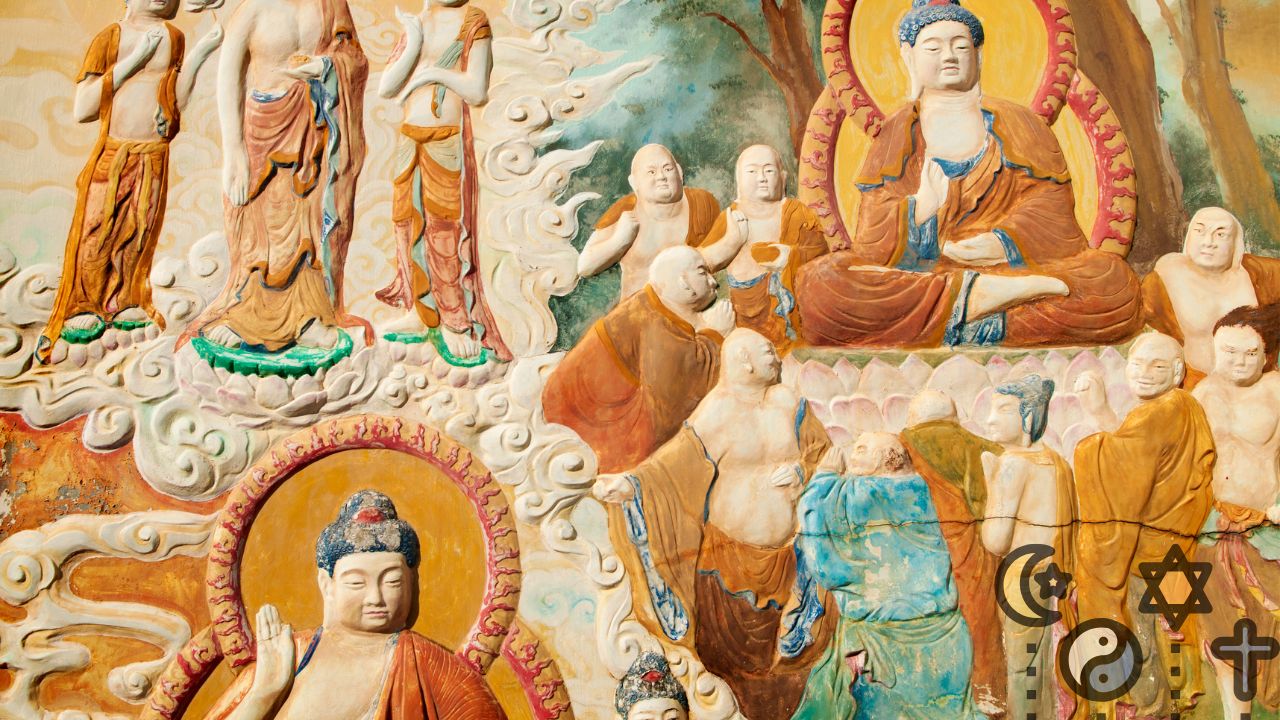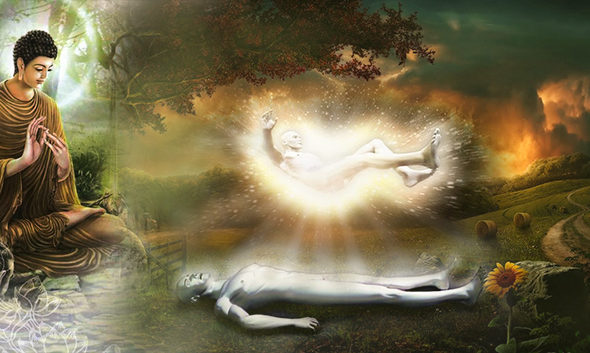In many cultures, karma is often misunderstood as an immediate system of rewards and punishments, where people receive instant consequences for their actions. However, in Buddhism, karma holds a far deeper meaning and is an essential part of the universe’s operating laws.
Karma is not merely about cause and effect; it is also a tool for spiritual education that God and the Buddhas use to cultivate the consciousness of sentient beings, guiding them toward enlightenment.
So, what exactly is karma in Buddhism? How does it work, and how can we apply it in our daily lives to develop wisdom and compassion?
1. The Buddhist Perspective on Karma
In Buddhism, karma (Pali: kamma) means “intentional action”, including actions of body, speech, and mind. Every action creates vibrations in the universe, and these vibrations will eventually return to affect the one who generated them.
The Difference Between Karma in Buddhism and Other Beliefs
- Not a fixed destiny – Karma is not an unchangeable fate but rather a continuous process shaped by present actions.
- Not instant punishment – Some karma manifests in this life, while deeper karma may take multiple lifetimes to bear fruit.
- Intent matters more than action – The same action with different intentions creates different karma. For example, donating to charity for fame is different from doing it out of genuine compassion.
In The Buddha Teaches Once More, karma is revealed as a divine tool created by God to train sentient beings, allowing them to experience both suffering and happiness, ultimately leading to spiritual evolution.
2. The Four Types of Karma and How They Shape Life
Buddhism categorizes karma into four main types, illustrating how past and present karma interact:
- Reproductive Karma – Determines the conditions of rebirth and life circumstances.
- Supportive Karma – Strengthens existing karma, which can be either positive or negative.
- Counteractive Karma – Can weaken or change past karma.
- Destructive Karma – The strongest karma, capable of overriding other karmic influences.
This structure emphasizes an important principle: we are not entirely bound by past karma—we can still shape our destiny through present actions.
In The Buddha Teaches Once More, the Buddhas reveal that God has arranged the appropriate conditions for sentient beings to create and repay karma, allowing each individual to learn the necessary lessons.
When a person suffers or faces challenges, it is not merely punishment, but an opportunity to understand the impermanence of the world and draw closer to enlightenment.
3. How Karma Shapes Our Lives
Karma influences every aspect of life, from rebirth to daily experiences. But more importantly, karma is a tool used by God and the Buddhas to train sentient beings.
Examples:
🔹 A person born into wealth may have accumulated good karma in the past, but how they use their wealth will determine their future karma—whether they use it for good or fall into greed and corruption.
🔹 A person facing poverty and hardship may be repaying past karma, but if they learn valuable lessons and practice righteousness, they can transform their karma and change their future.
Key takeaway: Karma is not punishment but a cosmic education tool. If we understand it correctly, we can use it for spiritual evolution.
4. The Ultimate Goal: Transcending Karma
Buddhism does not only teach how to create good karma but also shows the path to transcend karma entirely.
- Right View & Right Thought – Understand the true nature of karma and impermanence.
- Right Speech, Right Action & Right Livelihood – Live ethically and generate good karma.
- Right Effort, Right Mindfulness & Right Concentration – Practice meditation to purify the mind.
The ultimate goal is not to accumulate good karma but to transcend karma, attain enlightenment, and return to the Infinite Realm.
Conclusion
✅ Karma is not merely a reward-punishment system but a tool for cosmic education.
✅ Our current circumstances are the result of past karma, but we can shape our future through present actions.
✅ The ultimate goal is not to accumulate good karma but to break free from karma and attain enlightenment.
In The Buddha Teaches Once More, the Buddhas reveal that God has established the laws of karma to train sentient beings to become Buddhas. By experiencing both suffering and happiness, sentient beings will eventually understand the true meaning of life and evolve into enlightened beings.
What are your thoughts on karma? How have you applied it in your daily life? Share your insights!




